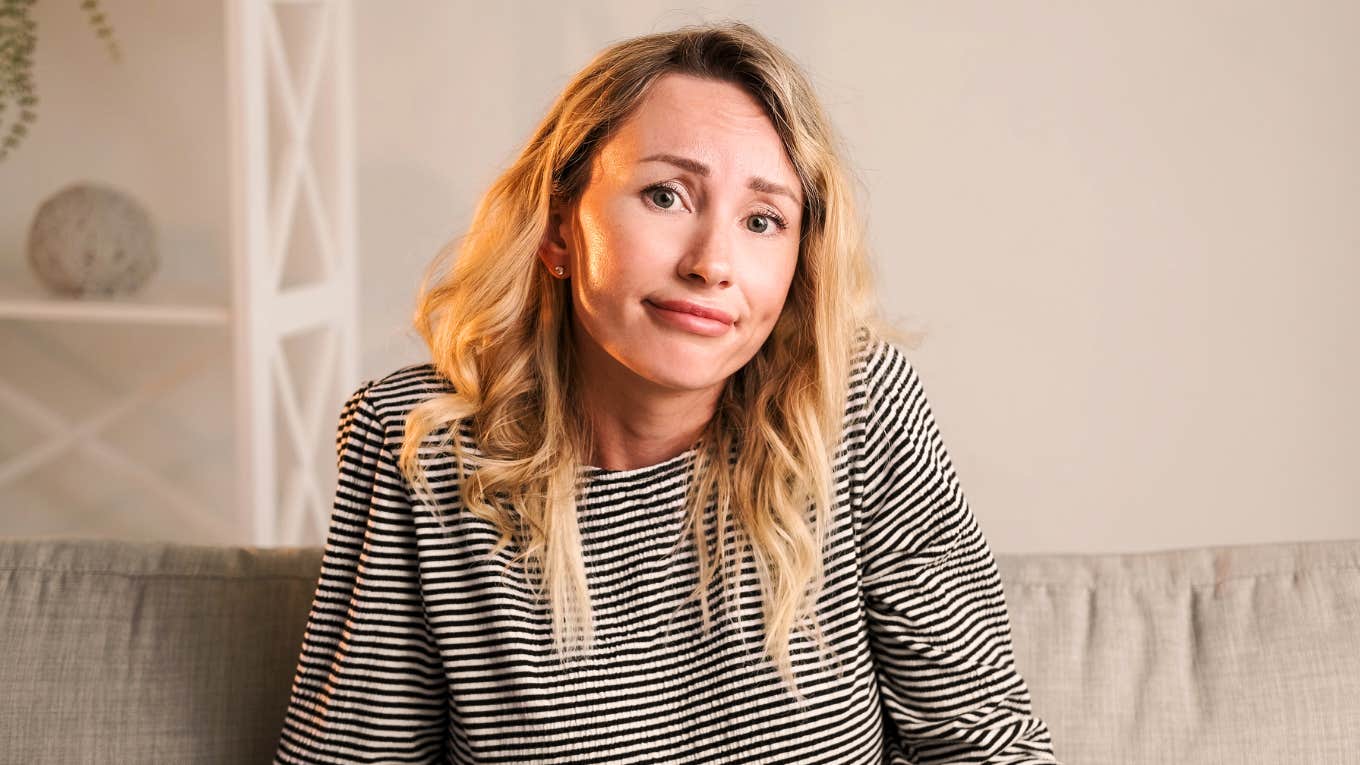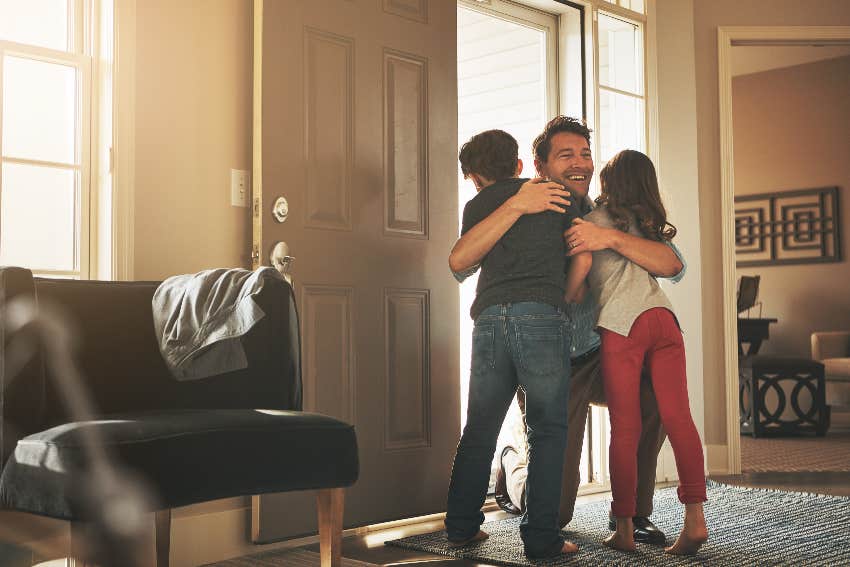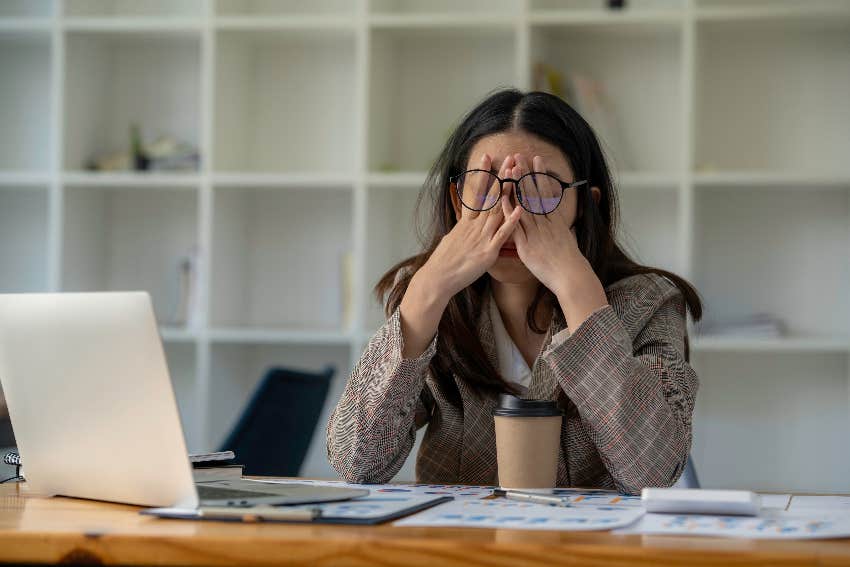A Millennial Reckons With The Grit She Doesn’t Have
Or, my nostalgia for low-density polyethylene, and the struggle for daily bread.
 golubovy | Canva
golubovy | Canva I’ve been writing this thing about letting the senses reconnect us with our emotions, and there’s a part that I can’t write without bawling. It’s just a childhood memory of being loved very much, combined with the adult understanding in hindsight of how much my father was sacrificing at the time.
My father worked horrendous jobs through most of my life, and the jobs he had when my brother and I were growing up were especially brutal.
He worked in a stone quarry briefly — too many injuries, too much risk of death. He pulled a man out of a stone-crushing machine, who would otherwise have been ground up alive. Haunting.
On another occasion, a shovel fell onto my dad’s head and left a deep wound in his forehead; that could’ve been way worse, had it split his skull. Plus, our family had inherited an awareness of the dangers of breathing mineral dust; our ancestors were miners. Their lungs paid the price.
So he quit that job and worked at a factory until I went to college. That wasn’t too much better, because he was breathing toxic chemicals all day, the hours were grueling (12-hour shifts, an erratic day-shift/night-shift schedule), and there were life-threatening accidents at the plant sometimes too.
But when I look back on one particular memory — a repeated memory, of my brother and me running into the kitchen to hug our daddy when he got home, and of him picking us up and holding us — I realize that it never occurred to me then that those hugs always smelled like plastic bags. Because that’s what they produced where he worked.
 Yuri A / Shutterstock
Yuri A / Shutterstock
He made the molds that printed the labels onto bread bags. In childhood, I just took for granted that he smelled like work.
But in my late 20s, sometime before I left Pennsylvania to commence my transnational quarter-life crisis, I opened a Ziploc bag one afternoon in my old apartment kitchen and was stunned to realize that I immediately thought: Dad...
(An illustrative contrast, by the way: my father was breathing rubber dust and plastic day and night in his late-20s; and I was saying, “Screw this,” throwing in the ivory-tower towel, and planning a move to China in mine.)
The emotion that engulfed me when I accidentally inhaled the smell of that bag was so powerful that I started to cry. Suddenly, I was in a different kitchen, the one from my early childhood, at age six. And I could hear my father, feel his hugs, see the flannel shirt where I buried my face whenever he lifted me up.
I could smell, on his clothes, the plastic. Low-density polyethylene: love’s signature scent.
I look back, and I see how hard my parents’ lives were. I always saw that my mom’s days were exhausting, and I understood intellectually that my dad’s jobs were bad, but when I try to put myself in his shoes — a 20-something risking his health (sometimes his very life) routinely in 12-hour shifts, doing monotonous work and breathing harsh chemicals day in and day out, with thankless bosses and no life of his own — I can’t wrap my head around it.
I don’t think I have it in me to do that. I couldn’t take care of two little kids as a 20-something if I’d had to, or even now; some days, I feel like I can’t even take care of myself. Experience has shown me that I can’t even manage soft things, like being a waitress a teacher, or even a university-paid graduate student (really more of a research slave, but still).
I’m nowhere near as strong as my father. This scares me.
The other thing that hits me though is that this is why I’ve made the choices I have made. Because I’m not that strong. I don't have that kind of grit.
I can’t manage when my heart isn’t in what I’m doing. Literally, I can’t; my health breaks down. I’ve seen it happen before. I’m afraid to try doing work I hate again because I’ve seen the consequences.
I recently wrote about my gratitude for a time in my life when being single helped me look into my future with more clarity.
I see that as a blessing, but I also see (and acknowledge in the same essay) that love can support, inspire, and recharge us in ways that its absence cannot. My parents are two people who met and married early in life and have always loved each other deeply.
To have a spouse you adore from the age of 21 (or younger, when they started dating), and then children together, I guess you find reserves that other people don’t have. Maybe things would be different for me if I loved someone I was building a life with, or for — but I don’t have those reserves.
Not the same way. And that scares me too: my work, whatever it is that I happen to find or to create for myself, is all I have to count on for my happiness in the now, and all I might have in the future.
Nothing’s guaranteed. When your work life is miserable, but your home life is happy, sometimes that’s as much as you need to manage.
But for anybody who doesn’t have a happy home life, the whole focus, sole focus, is on how you get by. If the only fulfillment I’ll ever find is from my career — which is a maybe — then it’s all the more important that I be able to find that.
My parents have told me sometimes that it’s hard for them to see me living the way I live, with all the lack and the instability, and that this is why — for how much they want to see me doing what I love — they ask whether I don’t want a more conventional job.
This conversation hasn’t come up in a while thankfully, since things began looking better once I moved back to Berlin, but whenever they do ask me, I usually answer — and it’s true, and my whole generation has woken up to this difficult truth seemingly at the same time — that I’ve already seen from their lives that it’s possible to “pay your dues” for years and years, take the “safe” route, and not only be just as unhappy decades later but also have none of the stability or abundance you were promised in exchange for holding up your dues-paying end of the bargain.
I don’t want that to be my life. And maybe when my parents look back, they might feel happy with their choices anyway because they’ve had love to serve as their reason … but I’ve had no incentive to choose the same way.
Hardship can feel meaningful and rewarding in the light of sacrifice. But the only person I’ve had in my life to sacrifice for is myself.
 CrizzyStudio / Shutterstock
CrizzyStudio / Shutterstock
The only future I’ve had in my life to sacrifice for is my own. Workplace stress grinds you down a lot faster when you’re the sole beneficiary of your own labors. Sacrificing yourself for yourself doesn’t work.
I could go on about this, but the bottom line is, I guess this is a big part of why I’ve so stubbornly been chasing creative and professional fulfillment, despite having such little energy (not even to mention no idea how) to achieve my dreams. I wish I could take care of my parents.
I wish I could give back to them. Or at least achieve something or other that reassured them that I was eventually going to be more than okay. In the end, yeah, it’s cool that I’m so resilient, but all the resilience in the world doesn’t necessarily help if you arrive at old age so banged up from a lifetime of financial crises that you can’t even stand.
This scares me. A lot. (And having once been a sociology Ph.D. student doesn’t leave me much room for optimism about intergenerational mobility. Even though I’ve spent my whole adult life trying.)
What also scares me is the idea that maybe that kind of love that my family has felt might not ever happen for me at all. I know I can love the kind of love that makes you resilient and brave, but things feel sort of hollow sometimes when all my efforts are just for me.
I’ve always said this; I’ve always been a person who loves to give and to share. What if I never achieve enough to give or to share? And what if I never have that life partner, or the chance to create and raise those children, whom I can give to or share those things with?
Would I feel differently then? Could I make more sacrifices? Is that what I need to stop making my family worry that I’ll spend my whole life as a bumbling, impoverished, debt-saddled screw-up?
To be fair, I’m not giving myself due credit here, and even my family — who doesn’t understand my lifestyle — comments sometimes on my courage. I might not be working grueling, monotonous jobs for high wages and benefits as they have, but sometimes I’m proud that I dared to quit a stable income in a bad economy and move (more than once) for better prospects to countries where I didn’t even speak the language, and try to make it on my own skills.
I’m proud that I’ve found ways to keep the dream alive, even when there was less than $100 in my bank account for weeks at a time and there wasn’t enough cash for more than one meal a day, so I subsisted off of street-cart noodles, convenience store snacks, steamed milk, tangerines, and carefully rationed chocolate bars.
Maybe that is strength. Maybe that’s stupidity. Or maybe that’s just millennial “entitlement."
Go ahead, call it what you will. I have moments, blips, over the years where I take stock and feel like, “This is good, I’m thankful that I’ve gotten here.” Even in the under-$100, hungry periods, amazingly enough, I have thought this.
But I don’t want to live in shared apartments with randos forever, or have bad health insurance forever, or need to work forever, and I am nowhere near being able to envision a believable alternative ending for myself because I am nowhere near knowing how I can answer those questions for my future. I don’t intend to do anything differently yet either, to be honest.
I still want to be a writer. I still want to share the story I’ve been working on for years. I still want to find some way to stop living hand-to-mouth, project-to-project, stop having to talk myself out of necessities like language classes or important insurance policies, with rationales like “But how will I pay my rent?” or (in China) “But how many meals will this cost?” (Everything was measured in meals in China...)
It’s always possible that tomorrow, or even later today, everything will change for the better. Something will click into place — a life-changing opportunity, a lottery windfall, a person will appear — and all this existential angst will be moot.
But for now, I’m just looking back on my life, and looking back at my parents — and lately, especially at my dad, whose own perspective and experiences I never got as close to understanding as my mom’s — and I just feel so sad, so sad that I can’t do what he did, and what he does, and even though I understand better now why I’m so resolute about my weird lifestyle.
My work is all I have for finding fulfillment; thus, my work must achieve it — I just feel really scared that none of what I dream of will ever happen, and that old-lady me will end up broke and truly trapped, and single and childless and languishing in a hopeless depression, like an old, fading star, dying out alone. I hope not though.
Because once upon a time, an uncomplaining young father in a coal-mining town inhaled plastic and rubber dust to support me, in the hopes that I’d have an easier life someday than he did.
And I want both to return the favor — by making my parents’ lives easier — and to make those dreams of his come true. Finally. Someday. Soon.
Laura Rosell writes about self-love, relationships, culture, travel, and everyday magic. Her work has appeared in Thought Catalog, Figs & Feta, and numerous publications on Medium.

